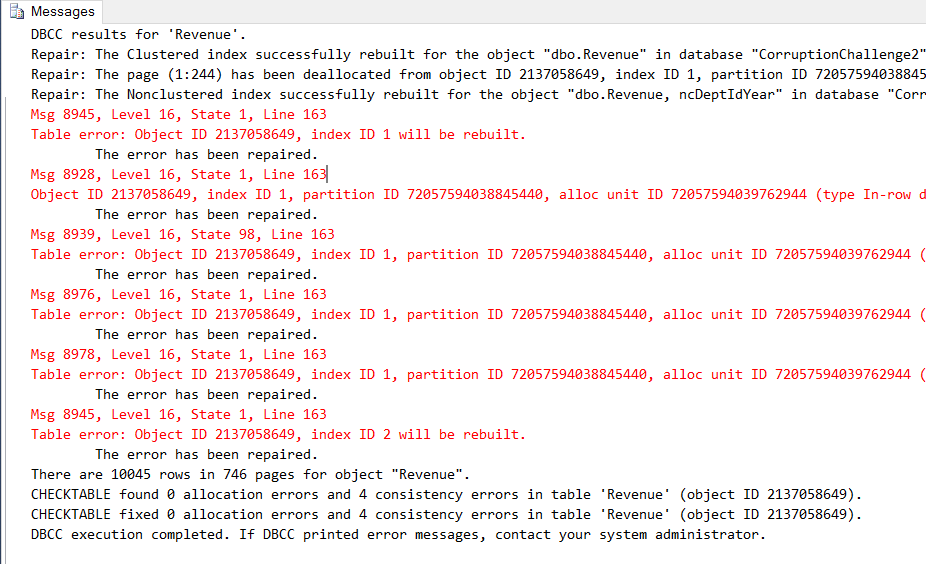Today on the tuning minute on the SQL Data Partners Podcast, we discussed duplicate indexes, which lead me to think more about and and write this post.
You know there are many different ways of doing things in SQL Server, and often times you can argue that one way or the other is better, and given the right situation anything might be a good idea. However duplicate indexes are a different story.
When I talk about duplicate indexes, what I mean is 2 or more indexes on the same table that are exactly the same columns. Something like this:
CREATE NONCLUSTERED INDEX [IX_LastName] ON [dbo].[Customer]
(
[Lastname] ASC
);
CREATE NONCLUSTERED INDEX [dta123123123_LastName] ON [dbo].[Customer]
(
[Lastname] ASC
);
Two indexes on exactly the same column. There is nothing to be gained here.
Read More »Duplicate Indexes, What a Waste
 n. Out of all of the things that can happen to your SQL Server this is the one that you are most likely going to want to ask for help when you encounter it.
n. Out of all of the things that can happen to your SQL Server this is the one that you are most likely going to want to ask for help when you encounter it.